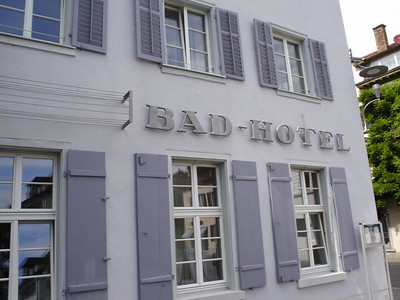Maintenance underpins hotel performance. If your hotel isn’t properly maintained at all times, your hotel won’t perform. It’s really just that simple. What does it cost to maintain a hotel?
It’s not really enough to fix things as they break. A hotel’s maintenance plan has to be proactive. The heat and air conditioning cannot go out. Ever. The electrical system, the fire alarms, fire suppression systems, the elevators, domestic hot water and the phones are all critical systems. A plumbing leak can take several rooms out of service in just a few minutes. A small fire in one room can shut down a whole floor for days or weeks.
Hotel maintenance can consume as much as 60% of a hotel’s operating budget. That sounds like a lot but running a hotel is expensive. Those expenses are not optional, and they’re difficult to stay ahead of. Maintenance is a central issue in this discussion because WCC plans to build and own a hotel.
It’s a little concerning that an institution that already has a $20M deferred maintenance bill on its existing buildings wants to take on a hotel.
Ah, but couldn’t WCC make the hotel operator responsible for the maintenance? Yes, they tried that with the Health and Fitness Center. After the operator trashed the special salt-water pool filters (which WCC had to replace), WCC was forced to take over the maintenance on the building. So much for shopping off the building maintenance to the operator.
Can WCC maintain a hotel?
Operating a hotel is providing a service. Bad maintenance = bad service. WCC has yet to demonstrate that it is good at taking care of buildings. In fact, it has demonstrated that it is bad at taking care of buildings. When the administration chooses how to spend its money, it doesn’t choose to spend money on maintenance.
Deferring maintenance leads to higher overall expenses. It also increases liability. Right now, WCC has installed netting over the doors of the Morris Lawrence Building to prevent the building’s brick facing from falling to the ground below. That poses a huge liability to anyone entering the building. It also poses a huge liability to WCC and by extension, the taxpayers.
The bricks are falling off the building because WCC chose not to maintain the building properly over a long period of time. WCC had the money to maintain the building; it just chose to spend that money on other things.
It’s not just the brickwork you need to look out for when you enter the building. The cement walkways are heaving, so the concrete outside of the doors isn’t level anymore. It poses a danger to anyone walking into or out of the building. Just as with the brick facing, the concrete is not level anymore because WCC chose to spend its maintenance money on other things.
Can you imagine asking hotel guests to dodge falling bricks and heaving concrete in the TripAdvisor era? Of course not. Bad reviews live on indefinitely on the Internet, so the hotel will always be WCC’s first priority for maintenance expenditures. The rest of the buildings on campus will suffer so that the Taj MaHotel can avoid the tyranny of TripAdvisor. (And the lawsuits, which the deep-pocketed taxpayer/owners will undoubtedly catch.)
Bad maintenance sends a bad message
In sociology, the “broken windows theory” posits that visible signs of blight or urban decay create a downward spiral that begets more blight. Poor maintenance is a kind of “broken window.” When the building owner doesn’t care enough to maintain its investment, it says something to the employees and guests. Why should either workers or guests care about a building that the building owner doesn’t even care about? Unaddressed maintenance problems beget more problems to ignore.
Taxpayers can’t afford the bills associated with taking care of a hotel at WCC. The decision to build and operate a hotel should be left to private investors who have the money, expertise and appetite to build, manage and maintain a hotel.
Photo Credit: Patty, via Flickr.com














